Oppenheimer is more Jewish than you realise
Oppenheimer may be a true story, but writer-director Christopher Nolan chose to tell it in a creative way.
He jumps between Oppenheimer's now infamous closed-door hearing during the height of McCarthyism, the confirmation hearing for Lewis Strauss, and the chronological development of Oppenheimer's career and the building of 'the gadget' – the atomic bomb whose detonation, and subsequent fallout, indiscriminately slaughtered hundreds of thousands of Japanese civilians and set the stage for a new world of technological warfare.
That Nolan was able to balance those three strands to tell a compelling story was a feat of some filmmaking genius. You may 'know' the story of Oppenheimer, but Nolan creates an evocative and intrinsically human version of that story; it was captivating and moving – and quintessentially Jewish.
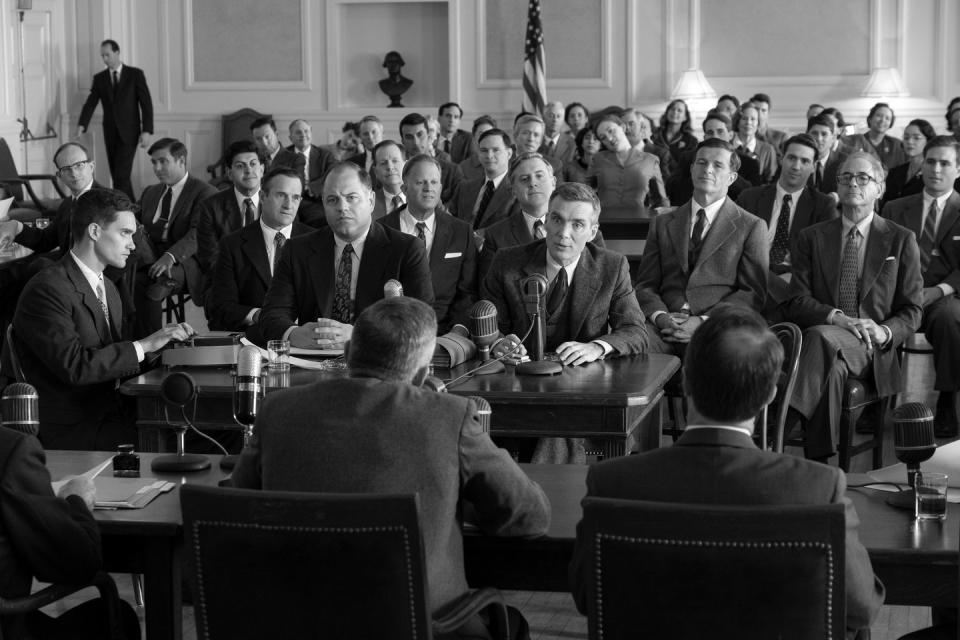
There is always debate whenever a story centres on a Jewish person, regardless of how that individual (fictional or real) defined themselves. Kvetching over Jew-face (a debated term in and of itself) and who should play a Jew preoccupies... well, mostly Jewish critics, to be honest.
We've written before about the debate over who gets to play a Jew, and in our opinion it doesn't bear repeating. Cillian Murphy is not Jewish, but he adeptly integrates the elements of Oppenheimer's Jewishness into the character.
The fact is, Oppenheimer's relationship to his Jewish upbringing wasn't intrinsic, nor based on religious orthodoxy or practice – it was ethnic and culturally informed, and even then it wasn't reportedly a driving factor in how he identified himself.
Oppenheimer was raised with the tenets of the Society for Ethical Culture, a Jewish-founded movement dedicated to ethical relationships, social justice, and democracy. As Elie Wiesel wrote in a review of the play version of the book upon which this film is based: "Despite being a notable Jew, he remained at a distance from Yiddishkeit."
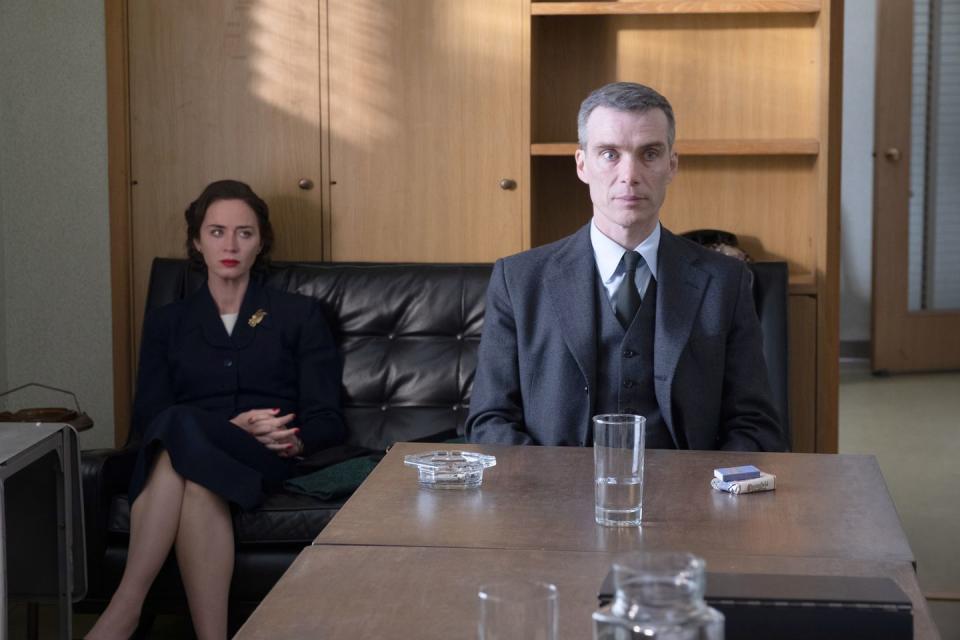
When Hitler began his 'final solution' to the 'Jewish problem', Oppenheimer saw his fellows, his kinsfolk, being rounded up and murdered, and their fate moved him personally.
In his letter to the Atomic Energy Commission charges, which Nolan integrates verbatim into the movie, Oppenheimer wrote: "I had a continuing, smouldering fury about the treatment of Jews in Germany.
"I saw what the depression was doing to my students... And through them, I began to understand how deeply political and economic events could affect men's lives. I began to feel the need to participate more fully in the life of the community."
There are countless more obvious ways in which Nolan addresses not only Oppenheimer's Jewishness but all the various ways one can 'be a Jew'.
His long-time friend and colleague Isidor Rabi (played by David Krumholtz in the film) meets him on a train in Germany, and easily uses Yiddish, a language Oppenheimer doesn't understand despite also being a New York Jew (like your writer).
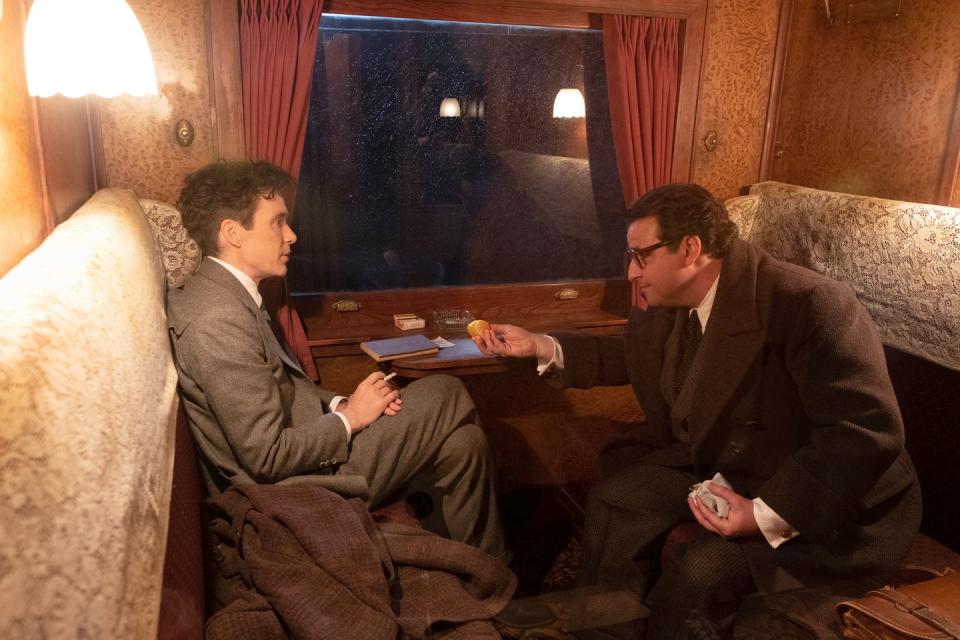
Between these two men is a tension of what it means to be Jewish, how one actively participates in that community, and how one internalises what that means.
Rabi is outwardly and inwardly Jewish; his acts of care towards Oppenheimer are easily summed up in his one-word command: 'Eat.' (It was refreshing to see this trope, so often foisted onto the shoulders of the 'nagging Jewish mother', enacted by a friend.)
Rabi also is the only one who is visibly disturbed by the successful test of the atomic bomb, and who held real and obvious moral conflicts about joining the Manhattan Project, the conflicts Oppenheimer grew to have.
Then there is Lewis Strauss (Robert Downey Jr), another version of what it means to be Jewish. Strauss was an active Reform Jew, having served as president of Temple Emanu-El in Manhattan for a decade amongst many other things.
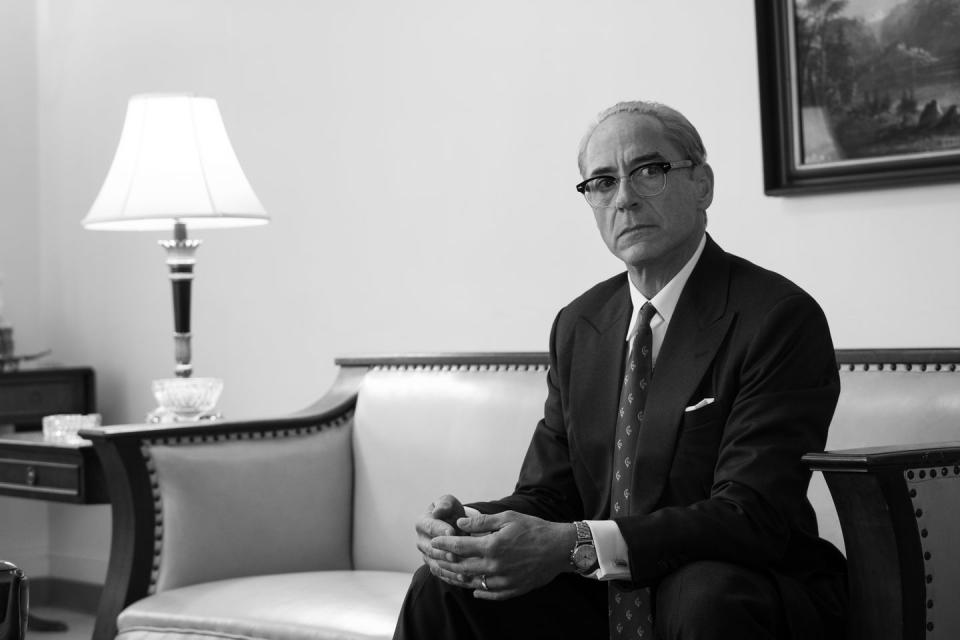
On the face of it, Strauss is 'more Jewish' than Oppenheimer. And yet, in the (albeit imagined) scene when the two meet, there is a succinctly potent exchange that sums up this very debate.
Oppenheimer addresses 'Mr Strauss', pronouncing it how one assumes it would be, only for Strauss to correct him. It's pronounced 'Straws' in the Southern fashion. The reply? "Ah-penheimer, Oh-penheimer. No matter how you say it they know I'm Jewish," and the table turns.
This kaleidoscope of Jewish identity allows the audience to get a full picture of how these men's ethnoreligious ancestry and upbringing impacts who they are, how they are perceived, and what they do. And, importantly, how they reconcile the tally of their lives and move forward.
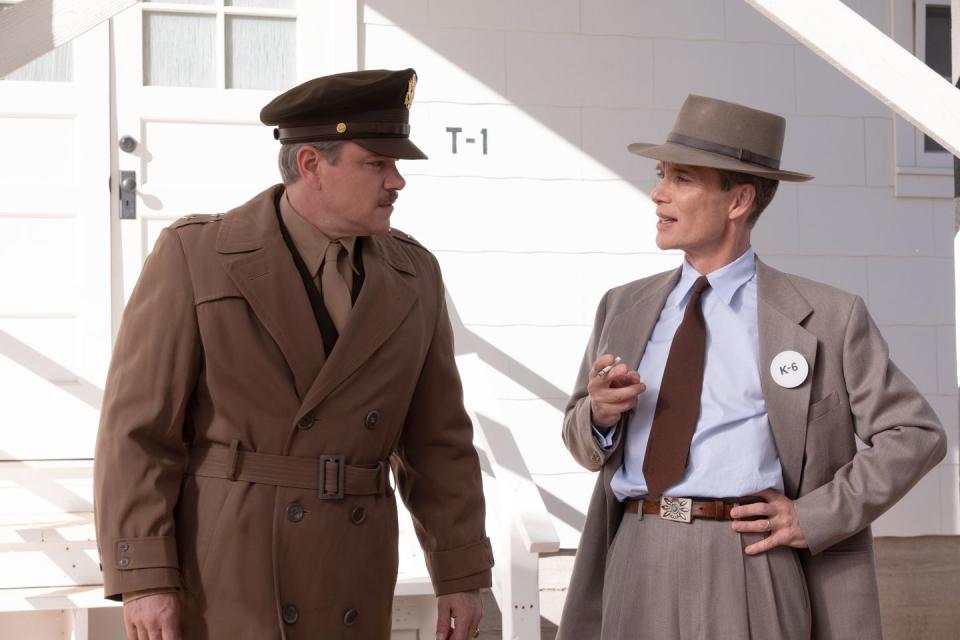
In Judaism, the absolution for sinning, particularly sins committed between people (which are more severe than those against god), isn't something that can be granted by a rabbi, nor through prayer alone. Atonement is t'shuvah, which means 'to return' to what is good, and it is a difficult return journey, and part of that returning includes doing good deeds (called tzedakah).
Oppenheimer's need to act can be perceived as stemming from this very Jewish tenet. After all, confession is only the first step of t'shuvah.
In another movie, a movie with a more Christian undercurrent, Oppenheimer's internal reconciliation might have reached its culmination in confession, absolution, and a happy resignation that the ultimate tally will be done by god at the gates of heaven once your life is over.
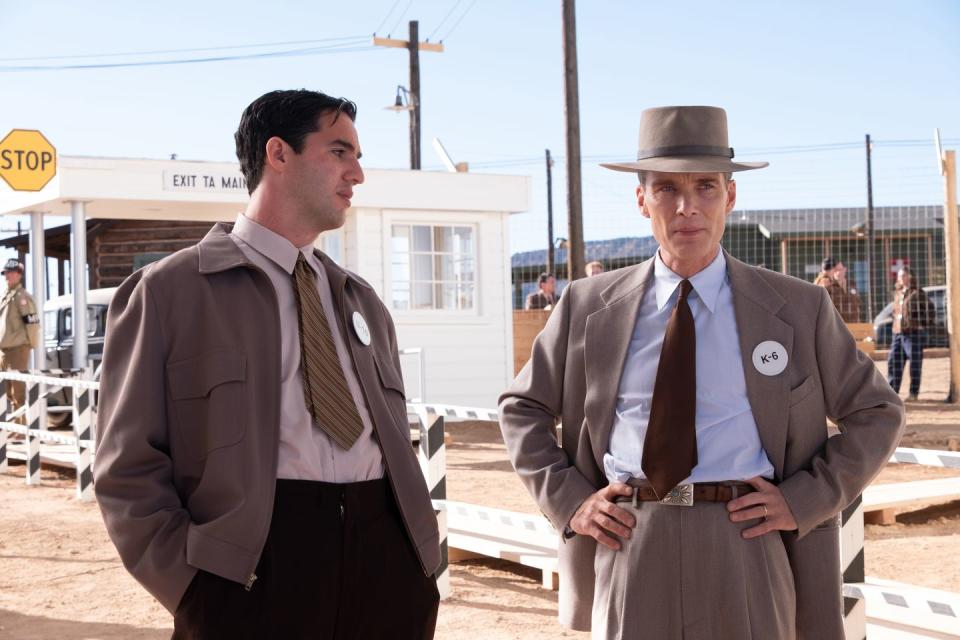
Instead, the movie is Jewish – it puts that tally back in Oppenheimer's hands, forcing him to do the math of his life and see what he must do to bring that tally to something that he can live with, in the present. (We do not have heaven or hell in Judaism, but we debate it a lot.)
Wiesel also wrote: "Oppenheimer embodied the questions, not the answers. He endlessly posed riddles, not solutions." This may frustrate you, a viewer, but it is exactly the kind of film Nolan likes to make.
It comes as no surprise that when Nolan turned his lens on J Robert Oppenheimer, we are left with a film that manifests a Talmud of sorts, a constantly evolving group debate from which we all benefit.
There will be those out there who disagree with our assessment and, well, you see where we're going with that...
For more Oppenheimer coverage, check out:
• Oppenheimer review
• How long is Oppenheimer?
• What happened to J Robert Oppenheimer and Lewis Strauss?
• All 12 Christopher Nolan movies, ranked
• Oppenheimer explained: Untangling the dual timelines
• Did J Robert Oppenheimer really know Albert Einstein?
Oppenheimer is now out in cinemas.
You Might Also Like